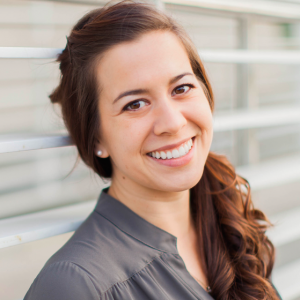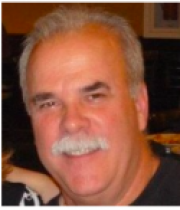Educational Planner
Mentor, Terrie Shipley
 Terrie is an experienced Independent Educational Consultant who works one-on-one with high school students to help them choose the educational path that will best reach their academic and personal goals. Terrie’s degrees include a B.S. in Journalism and a B.A. in Political Science from Syracuse University and a M.A. in Education from Michigan State University. She is now working on completing her doctorate in Educational Administration from the University of Oklahoma. Terrie is also active in the Tulsa community and is the Associate Director of the Youth Philanthropy Initiative, a program designed by international philanthropist Lynn Shusterman to teach high school students the fundamentals of philanthropy and leadership and to give them the opportunity to create their own social franchise. Terrie is also currently acting as the Board President of Mental Health Association Oklahoma.
Terrie is an experienced Independent Educational Consultant who works one-on-one with high school students to help them choose the educational path that will best reach their academic and personal goals. Terrie’s degrees include a B.S. in Journalism and a B.A. in Political Science from Syracuse University and a M.A. in Education from Michigan State University. She is now working on completing her doctorate in Educational Administration from the University of Oklahoma. Terrie is also active in the Tulsa community and is the Associate Director of the Youth Philanthropy Initiative, a program designed by international philanthropist Lynn Shusterman to teach high school students the fundamentals of philanthropy and leadership and to give them the opportunity to create their own social franchise. Terrie is also currently acting as the Board President of Mental Health Association Oklahoma.
Terrie started her consulting business after working in the admissions department at the University of Tulsa. She noticed that many high school students needed more individual help choosing and applying to a college than what was available to them through their high school counselors. While there are over 900 members of the Higher Educational Consultants Association, Terrie is the only one doing this in Oklahoma and represents a unique resource for the state’s high school students.
When she graduated from high school, Terrie wanted to be a broadcast journalist. But after a college internship at NBC, she realized that career was not compatible with what she wanted in her personal life. The experience gave her an understanding of how important it is for students to seek guidance for—and experience first-hand—various career options before choosing one to pursue in college. In meeting with clients, Terrie conducts an interview and assessment where she helps the student understand their personal values and goals so they can select career options that not only match their academic abilities but also complement how they want to live their lives.
Terrie also points out in her article that there are two kinds of financial aid, one based on merit and one on need. So regardless of their family’s financial situation, students can apply for many different kinds of funding that can significantly reduce the cost of a college education.
Terrie’s article will be of interest to high school students and their families if they want to learn more about how to make the best decision when pursuing a college and/or career.
Overview
I grew up outside of San Francisco with parents who had a strong work ethic and were entrepreneurs. From the time I was five, I thought I wanted to be a broadcast journalist. When I graduated from high school, I went to Syracuse University because they had a highly rated journalism school and because I wanted to live away from home to be more independent. After my freshman year, I was lucky to get an internship at NBC in New York City where I was able to work with their Education news reporter. One evening I heard her talking to her husband and her kids, telling them that she was going to be home late again. She was kind of tucking them into bed over the phone. I knew then that being a broadcast journalist was not the kind of life I wanted. The commitment of time that was required to be a great broadcast journalist was something that would not allow me to have the family life I wanted. I went ahead and finished my journalism and political science degrees a year and half early. I then spent half a year in Europe, first in Madrid teaching English to students of varying ages, and then backpacking with my now-husband. I am half Chinese and always wanted to go to China. So after six months in Europe, I lived in China for eight months and taught Chinese students who planned to become teachers.
When I came back, I got a job as a resident advisor at Saint Mary’s College, which is a women’s college next to the University of Notre Dame. While I was there, I earned my Master’s in Education from Michigan State University through their online program. MSU was in the forefront of offering quality online learning programs.
My boyfriend, who is now my husband, was from Tulsa and was going back home to start law school at the University of Tulsa. So after I got my M.A.Ed., I moved to Tulsa and took a job at TU in the Office of Admission. While I was there, some neighbors’ children were having trouble with their college admission essays. With TU’s approval, I began helping students with these essays after word and saw a need for even broader educational counseling for high school students. I could tell that many of them were being pulled in different directions regarding career and college choices by their friends, parents and relatives and had not done a personal assessment of what they wanted in a career and a college. The effects of the high student to counselor ratios in town created a need for more one-on-one attention. In many public high schools, counselors also have to be involved in making sure students graduate from high school, much less go to college. This leaves less time for counselors to help students plan for a career or choose a college. There was clearly a need for this kind of service in Tulsa. I learned that there were educational consultants throughout the U.S. but none in the entire state of Oklahoma. Watching my parents create their own businesses made it easier to decide to start my own consulting firm. In 2011, I started Terrie Shipley Consulting (www.terrieshipley.com).
My client is the student and I do not receive compensation from any college. I work in the students’ best interest. I am also a member of the Higher Education Consultants Association, which outlines standards and ethics for the profession. Most of my clients come from middle- to upper-class backgrounds and have always expected to go to college but still need personal guidance to help them navigate the admissions and career process. However, I always do pro bono work for some students whom I feel have potential but are unable to pay.
Admission to the best schools is highly competitive and I help my students make sure that they can submit their applications with more confidence. It is also important to help the student choose an academic program in a social setting that is right for them so they can achieve both personal and academic growth, which is part of my overall value assessment of a college program.
One thing I tell high school student is that they should begin to explore potential careers that match their interests very early and learn more about these career fields. I also encourage students to visit college campuses. I tell them that when they are out of town for any reason, they should stop by some campuses that might interest them. It’s one thing to visit Oklahoma State University and the University of Oklahoma, but students should at least check out the differences in a research university and a liberal arts college or a public school versus a private school. I also tell them that while they are visiting, they should try to connect emotionally. I can help a student research why a school makes logical sense but nothing can compare to how a student feels in that environment.
A parent should let the student take ownership of the process. This marks the beginning of the transition to more independence so it’s important for the student to be in the driver’s seat. Still, that doesn’t mean a parent can’t stay up to date with how things are going. Parents can also be helpful when it comes time for students to write their essays and prepare for admission interviews. Keep in mind though that what’s most important is the preservation of the student’s voice, or personality, in the essay and interview. Admissions counselors can tell if a parent has doctored the essay or if the student’s answers are stock and too rehearsed. As much as possible, the student should feel in control and at ease because they are being authentic.
The Educational Consulting Process
Here is the approach I take when I work with an individual student to help them make the best choice:
- I first like to meet with the student and learn about their personal goals, what they value in life and their personal talents and interests before talking about their educational objectives and performance.
- I usually do a combination of personality and career assessments. For students who will not be working with me, I encourage them to visit mynextmove.org. There is a free career assessment to help students identify their a number of careers that might fit their preferences, such as working environment and daily tasks.
- After determining the student’s career path, I then develop a preliminary list of colleges that may be a great fit for that student. It’s quite personalized, taking into account not only the colleges that have the best programs for the career path they have chosen, but also the student’s personality, preferences, and even academic or social environments that I believe would be conducive to their thriving.
- We also talk about costs and overall best value. I help students and their parents understand where the most significant funding may come from. There is financial aid available to students based on merit as well as financial need. In order to apply for need-based aid, students need to complete the Free Application for Federal Student Aid (FAFSA). There are some colleges that give small grants just for filling out this form and turning it in with your application. Many scholarship applications require additional essays, which is another aspect of the process that I help coach the students on.
- It is important when considering cost to know if the student’s educational goals include graduate school. That is an additional expense and there may need to be a plan to balance the overall cost of a student’s education by attending a less expensive school for their undergraduate degree to have more money left to be able to afford a good graduate school. There may also be some academic strategy involved in that scenario.
- If desired, I then work with the student and their parents to help them decide on the school that represent the best value in terms of academics, social environment and overall cost. I won’t just tell the client what I think; I coach him or her through the thought process. We work through all the possible pros and cons and consider various scenarios. Finally, if the student is really stuck between options and asks for my opinion, I will give it. If a student has a gut feeling, it should be taken seriously.
- Because of my personal experience with “knowing” that I wanted to be a broadcast journalist, building an academic and extra-curricular resume to be geared for that career, selecting a college mainly for its journalism program, and then finding out this was not what I wanted to do as a result of my freshman year internship, I believe there was one important element missing. I encourage high school students to shadow someone working in the career they are considering so they can get an idea of what is actually involved in the job. One local high school has a program where students can shadow people at their jobs, which I think is great. However, this takes place during the second semester of their senior year, which I think is too late. I feel it is better for students to try to do this earlier so they can be sure the career they are considering is really something they will like before they get too far into college planning. Nowadays, there is a lot more thought that needs to go into selecting a career than aptitude or even interest. For example, does the lifestyle that this career provides complement the vision you have for yourself? Or, do the day-to-day tasks utilize your strengths and have the potential to put you in a “flow” state, where the work doesn’t even seem like work?
- Here are four links to “ College Planner” articles I wrote for Tulsa Kids Magazine that also discusses the college planning process:
“Parental Involvement: Where to Draw the Line?” (2014)
“Top 10 College Interview Tips” (2014)
“The Thing about Community Service” (2013)
“Trying a College On for Size” (2012)
“What Not to Write on Your College Application” (2012)
Summary
I enjoy helping students choose the best college that will help them reach their academic and personal goals. It always makes me proud to get a text message from a student who has just gotten admission to a school they really wanted. They are excited and relieved and it is a turning point in their confidence.
If you are interested in careers in education and working with students, being an educational consultant may be something to consider. There is no formal training program or degree program to become an educational consultant. But one common thread is they generally have five or more years of experience working with students in areas like college admission or guidance counseling before they consult. As an independent consultant, I get to work out of my home and set my own schedule, which is something that I highly value as the mother of a young child.
Wage Estimates for Education Consultants
While there are a group of educational consultants like Terrie who are independent, many are hired by schools and other educational training groups as well as large companies like IBM who provide training and educational programs to their employees. This full range of job opportunities are included in the salary surveys YPNG has researched.
According to the job site Indeed.com, the average educational consultant in the United States makes $81,000 per year and Salary.com reports an average salary of $64,069. Salaries vary for rural and urban areas and different regions of the country. Experienced consultants can earn in the low-to-mid six figures. The lowest paid consultants in these surveys made $36,000 and the highest paid made $158,000. Career duration is the biggest factor affecting pay for this group followed by geography.
These sites expect job growth of about 20 percent for education consultants over the next decade. This is better than the average of all occupations of 6 percent. The job outlook for educational consultants is favorable throughout the country because the increasing cost of education makes it more important that people make the right choice before they start college.
Education consultants in the United States tend to have a good amount of experience under their belt — just over half have more than 10 years in the field.
Most education consultant survey respondents are women (76 percent).
The majority of education consultants say they have high levels of job satisfaction.






